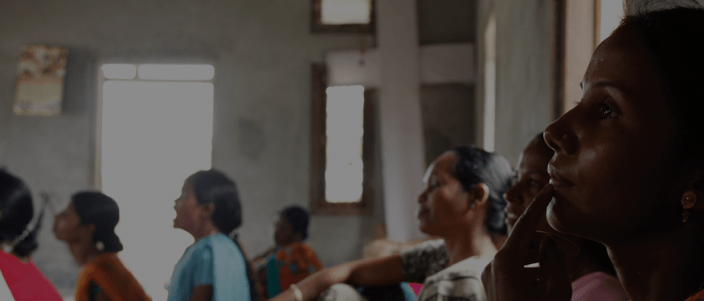Legal Empowerment
In 2019, 5.1 billion people worldwide were found to live outside the protection of the law. Global pandemics, climate emergencies, threats to democracy, racism, and income inequality continue to exacerbate this justice crisis. This is a crisis of injustice, and it calls for a deep change in approach to alter the basic conditions of those who experience persistent injustice. Legal empowerment—a global movement led by grassroots, with lawyers and other professionals in supporting, rather than leading, roles—is a crucial part of the justice transformation that is needed. It is a rights-based methodology that democratizes laws and centers people in their own fight for justice by creating opportunities for people to “know, use, and shape” the laws that impact their lives. Legal empowerment takes many forms, from community paralegal programs, to community driven campaigns, popular education efforts, and community-driven litigation, among others.
The Bernstein Institute is the only U.S. legal academic center dedicated to advancing research, education, and advocacy on legal empowerment in the United States and globally. We teach law students to act as allies instead of “experts,” and partner with grassroots activists, lawyers, and scholars to think collectively about how to use the law to address structural injustice. A central tenet of the work is the redistribution of legal power - with communities in the lead in defining the justice they seek.
Programs
Through our legal empowerment programs we support and learn from our community partners as they build power, dignity, and knowledge to actively challenge inequities impacting their communities. We organize trainings on legal empowerment, co-create legal education and empowerment resources, co-produce participatory action research on the power of community justice, and hold convenings to highlight the success and promise of legal empowerment.
Education: Global Learning Initiatives and Conferences
- Organize the Legal Empowerment Learning Lab, a groundbreaking workshop dedicated to advancing research and learning on legal empowerment with a focus on participatory methods. The Lab is a caring, collaboratively constructed community space that cultivates deep learning over the course of a year on how participatory research methods can be integrated into legal empowerment work to invite meaningful social transformation. The Lab features grassroots practitioners and academics from all over the world who bring deep experience and expertise in community-driven justice. The Lab’s gatherings include a mix of conceptual sessions, fundamental skill modules, case studies, intimate accompaniment, warm encounters for community and witnessing, and small working group sessions. While we engage with global leaders in legal empowerment and participatory action research, we believe our greatest learning comes from one another.
- Co-convene the Global Legal Empowerment Leadership Course, an intensive training program dedicated to nurturing knowledge, methodology, and empirical research with more than 60 practitioners from over 30 countries. The course is a collaboration between Namati, Open Society Justice Initiative, and the Bernstein Institute.
- Designs global conferences dedicated to deepening an understanding of legal empowerment as a central strategy for realizing human rights from the bottom-up, including Critical Legal Empowerment, Reimagining Justice and Democratizing Data. Created interactive websites archiving the conferences with videos, resources, and programs available for the public. Check our archived events page and past annual conferences.
Research and Advocacy: Legal Empowerment Projects
- The Jailhouse Lawyer Initiative (JLI) was founded by Jhody Polk, a formerly incarcerated jailhouse lawyer from Florida and 2018 Soros Justice fellow, and is housed at the Bernstein Institute. The JLI invests in jailhouse lawyers—incarcerated justice advocates--as a core strategy to ending the cycle of incarceration. The JLI fuses legal education, movement building, participatory research, and advocacy to bring visibility and connection to jailhouse lawyers and ensure they have the resources to know, use, and shape law. Learn more about the JLI here.
- Justice Power, a project that uplifts the work of immigration organizations in the U.S. who partner with communities to know, use, shape, and transform the laws that impact their lives. The work involves the documentation of methods such as JusticePower.org, an accessible, interactive website that houses information on the respective models; Teach-ins to share nuts and bolts of legal empowerment methods to broader immigration services community; and Advocacy to push for a more inclusive, dynamic justice ecosystem which centers communities.
- UPL as a Human Rights Violation: in partnership with the Global Justice Clinic, this project documents the impact of Unauthorized Practice of Law (UPL) rules on jailhouse lawyers and their communities. GJC and the JLI then train members, organize communities and form coalitions with other communities negatively impacted by UPL, with the goal to advocate for reforms that would allow former jailhouse lawyers to contribute legal services to their communities when they leave prison.
Building Next Generation of Justice Collaborators
- Invest in the next generation of human rights advocates through placement of a Masiyiwa-Bernstein fellow at legal empowerment organizations. Learn more about our fellowship, currents fellows and partner organizations.


